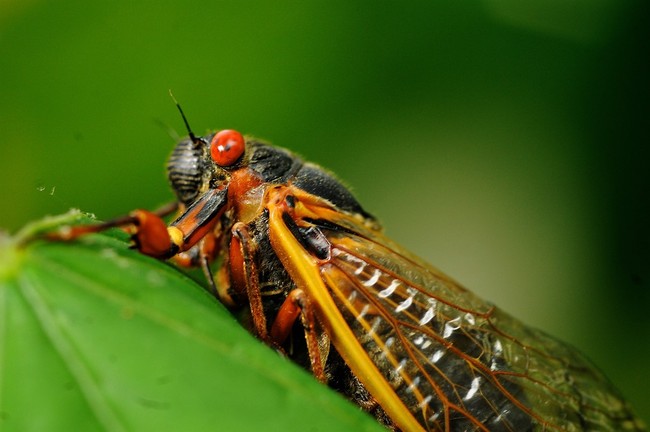There is a cycle in the press when new ideas from the left emerge: Their daft proposals get reported on, then there is a reaction or backlash from the right, and next the press responds with mock offense by suggesting conservatives created a conspiracy that does not exist, finishing then as the original proposal is regurgitated and normalized anyway. We saw this in 2023, with the concept of banning gas stoves, where all these steps played out in a matter of days.
Another example involves the agenda of having society save the planet by moving away from beef consumption and having us eat bugs. This was forwarded by the elites at the World Economic Forum, and then the press tried to pretend these privileged authoritarians did not propose this insect diet. Except the WEF was on record, and speakers were on video, pushing the infested foodstuffs.
Now we are in the normalization phase, as reports come out–on the regular–making it sound like perfectly normal behavior to gulp down critters. This summer, we have seen the latest emergence of a strain of cicadas, and for some reason, publications feel it is normal to collect these bugs and bring them into the kitchen. It is safe to say these outlets are not serving cicadas in cafeterias and commissaries.
For this latest outbreak, we are also seeing this trend segue into the world of zymurgy. There is always a tendency for brewers to come up with new ingredients to include in brewing, for the sake of exploration and publicity, so it is not exactly shocking to see cicadas getting appropriated for the cause.

In prior arrivals, we saw beers offered that played off of the news, naming varieties and coming up with labels that used cicadas in the name. But this year’s emergence saw some breweries taking things to the extreme – cicadas being used in the brewing process.
In Chicago, Noon Whistle Brewing has crafted a liqueur using the bugs. A Chicagoland favorite is Malort, a Swedish spirit, and the gang at Noon Whistle has gone so far as to distill a cicada variant, complete with the activism promotional copy:
Safe, Nutritious, and Totally Unique: You might be surprised to learn that eating cicadas is not only safe but also nutritious! Packed with protein and low in fat, cicadas are a sustainable and eco-friendly food source.
A beer is also being crafted with the cicadas, up in Wisconsin. The Topsy Turvy microbrewery, in Lake Geneva, has made available in its taproom the limited-edition microbrew, “Magicicada Buzz” Nut Brown Ale. The brewer used dried Cicada powder and thorough a trial process, found this mix did not blend well in the wort, so they resorted to holding the powder in mesh and then steeping it in the batch, macerating the bugs to get what is described as an earthy, mushroom-like back flavor.
The Homebrewers Brewers Association also provides a different option, one involving roasting the bugs and then adding them to the mash to simmer and dispense any flavor. Therein lies the issue. The FDA has issued a warning, in light of all of the press about consuming these 17-year cycle insects. Cicadas bear enough relation to crustaceans that those with shellfish allergies need to steer clear of consuming bug-based dishes.
In the promotional copy from Noon Whistle, they take this further, describing that their concoction takes on some characteristics of shellfish. This is supposedly a selling point:
Lobster-Like Flavor Sensation: Believe it or not, the 17-year old virgin cicadas bring a flavor reminiscent of succulent lobster to this insanely delicious concoction. It’s a taste you won’t find anywhere else, and it’s only available once every 17 years!
It is not clear who would want to have the taste of lobster or shrimp in their beer, but we are not in a position to judge. We are, though, in a position to bypass any potable with such an ingredient. We do not want to encourage the overreaching, totalitarian figures at global conferences trying to get us onto an insect-based diet plan.